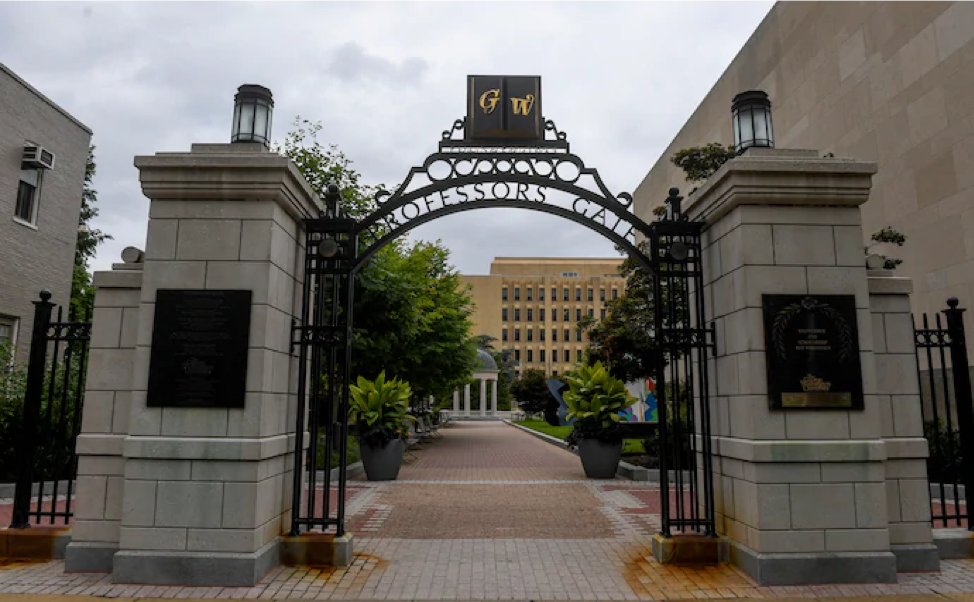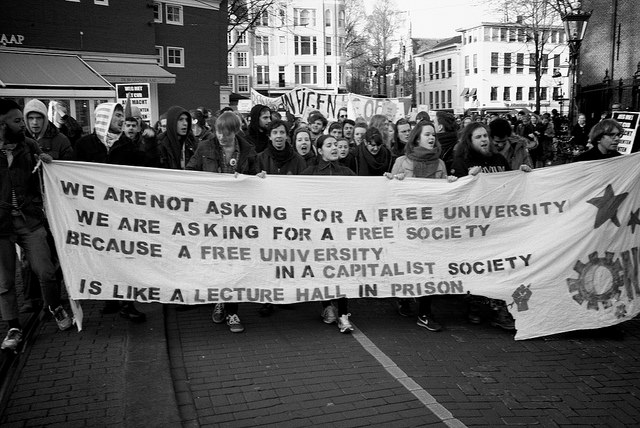
The George Washington University has boasted an endowment of nearly $1.7 billion. During the COVID-19 crisis that university has access to a $300 million line of credit. The university had attempted to hire Ms. Heather Swain—a notorious rape apologist who helped to cover the abuses Larry Nassar committed during her time at Michigan State University—but apparently now GW doesn’t have enough money to keep its faculty and staff; it doesn’t have enough money to help its most vulnerable students.
While the pandemic has raised issues with how students will be attending university—as well as how the university will be footing the bill and handling budget issues—the George Washington University stands alone in its cuts—cuts that will amount to layoffs, pay cuts, and a reduction in financial aid for students. In the middle of a pandemic, the university is taking money from students who need it most, and health insurance from their employees.
How can LeBlanc justify the cuts? How can the GW administration call layoffs, pay cuts, and hiring freezers a more practical decision for the budget issues instead of looking into other methods of finding the money?
During his career, GWU President Thomas LeBlanc has made some questionable money decisions. These include spending half a million dollars on his inauguration in 2017, contracting the Disney Institute to administer campus climate surveys at a whopping $300,000 and extending that contract without further discussing the cost to the university community. LeBlanc further created an impression, if not a culture, of institutional nepotism by hiring eight people with ties to his former institution in Miami.
The hiring freeze came just as LeBlanc announced the hiring of former VP of Communications at Michigan State University Heather Swain, who helped the university cover up its handling of Larry Nassar’s sexual abuse of athletes. The lack of transparency and poor vetting procedures almost had a known rape apologist once again in a position of power, once again having students at their mercy. Whether or not LeBlanc knew is immaterial; he and the administration cared so poorly for the vetting process and protection of their students that Swain almost secured a job at the university. A half-hearted apology followed by erasure of any announcement that the university had any contact with Swain merely added fuel to the fire.
LeBlanc is no stranger to shaking the confidence of faculty, staff and students alike.
Let us not forget his racially charged language in February, when, in a discussion about fossil fuel divestment, “LeBlanc attempted to make a point about the impracticality of majority rule by describing a hypothetical scenario where all students votes to ‘shoot all black people here’”. His apologies were meaningless when in the same breath, students faced attacks by police when attempting to hold him accountable for his racist comments and demand the university divest from fossil fuel.
And now the faculty and staff are facing more of this president’s cruelty. The response to the pandemic has included mass layoffs (nearly 70 staff positions in career services, facilities, and the Continuous Improvement and Business Advisory Services office), salary cuts (of $27 million in cuts to faculty compensation), and a suspension of retirement benefits.
Students are fairing no better in the university’s budget issues. The 10% reduction in tuition for those students who did not return to campus included a recalculation of the students’ aid packages. The changes to the financial aid has made the tuition cost to some students—notably students from marginalized backgrounds—“insurmountable”. The outcry prompted another newly-hired-during-a-hiring-freeze VP—Jay Goff—to address the tuition cut and financial aid issues that students have been facing.
As an alumna of this university, I am deeply concerned with the handling of the budgetary proposals by the administration. As a student, faculty and staff supported me so that I was successful during my university career. How can the administration, how can LeBlanc, demand excellence of that same faculty and staff while they fear lay-offs, salary cuts, and who knows what else? How can they effectively teach at a prestigious university while their livelihoods are in danger? How can they support students when they proposed a different way, only to be ignored by a man that has mismanaged and bloated those at the top?


